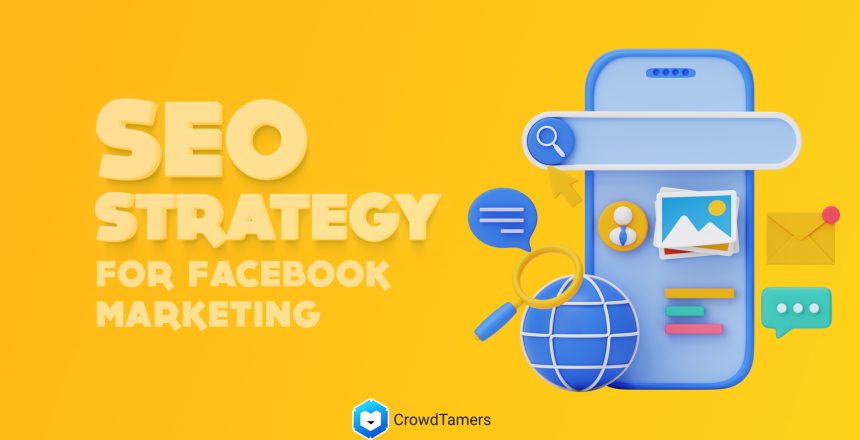Two of the most potent tools in your digital marketing arsenal are Facebook marketing and search engine optimization (SEO). While these two strategies may seem distinct, they can actually work together in harmony to drive better results for your business. In this article, we’ll explore how Facebook marketing can support and enhance your SEO efforts, and how you can use both to validate your startup idea and achieve online success.
The Connection Between Facebook and SEO
At first glance, Facebook marketing and SEO may appear to be separate entities. However, there are several key ways in which your Facebook presence can impact your search engine rankings and visibility:
- Social signals: When people engage with your content on Facebook (e.g., liking, sharing, commenting), it sends a signal to search engines that your content is valuable and relevant. While social signals may not be a direct ranking factor, they can indirectly influence your search rankings by increasing your brand visibility and driving more traffic to your site.
- Traffic and engagement: Facebook can be a powerful source of referral traffic to your website. By sharing engaging content and running targeted ads, you can attract more visitors to your site. This increased traffic can lead to higher engagement metrics (e.g., lower bounce rates, longer time on site), which can positively impact your search rankings.
- Link building: While Facebook links are typically “nofollow” and don’t directly impact search rankings, your Facebook presence can still support your link building efforts. By creating valuable content and promoting it on Facebook, you can attract the attention of other websites and earn natural, high-quality backlinks.
Optimizing Your Facebook Content for SEO
To maximize the SEO benefits of your Facebook marketing, it’s important to optimize your content for both engagement and search visibility. Here are some tips to keep in mind:
- Use relevant keywords: Incorporate relevant keywords into your Facebook page title, description, and post captions. This can help your content appear in Facebook search results and also reinforce your target keywords to search engines.
- Optimize images: Use descriptive, keyword-rich file names and alt text for your Facebook images. This can help your images appear in Google Image search results and also improve accessibility for visually impaired users.
- Create engaging content: Focus on creating Facebook content that is valuable, informative, and shareable. The more engagement your posts receive, the greater their potential SEO impact. Experiment with different content formats (e.g., videos, infographics, polls) to see what resonates best with your audience.
Using Facebook to Drive Traffic and Improve SEO
One of the most powerful ways to use Facebook for SEO is to drive targeted traffic to your website. Here are some strategies to try:
- Facebook ads: Use Facebook’s robust targeting options to create ads that reach your ideal audience. Drive ad traffic to your website’s key landing pages and blog posts to increase visibility and engagement.
- Retargeting: Use Facebook retargeting to show ads to people who have previously visited your website. This can help bring visitors back to your site and improve metrics like time on site and pages per session, which can positively impact your SEO.
- Measuring impact: Use tools like Google Analytics to track the impact of your Facebook traffic on your SEO metrics. Look at factors like bounce rate, time on site, and pages per session for visitors coming from Facebook. If you see positive trends, it’s a sign that your Facebook marketing is supporting your SEO efforts.
Building Links and Authority with Facebook
In addition to driving traffic, Facebook can also be a valuable tool for building links and authority. Here are a few strategies to consider:
- Facebook groups: Join relevant Facebook groups in your industry and share your content when appropriate. This can help expose your brand to new audiences and potentially earn backlinks from other group members.
- Influencer partnerships: Identify influential people or pages in your niche and explore opportunities for collaboration. By partnering with influencers to create and promote content, you can tap into their audience and earn high-quality backlinks.
- Content amplification: When you publish new blog posts or articles, share them on your Facebook page and encourage your followers to share with their own networks. This can help your content reach a wider audience and attract natural, organic links.
Facebook Marketing for Startup Idea Validation and SEO
If you’re a startup founder, Facebook marketing can be a powerful tool for validating your business idea and laying the foundation for SEO success. Here’s how:
- Create a landing page: Set up a simple landing page that describes your product or service and encourages visitors to sign up for more information or join a waitlist. Use Facebook ads to drive targeted traffic to this page and gauge interest and engagement.
- Analyze traffic and engagement: Use Facebook Insights and Google Analytics to track the behavior of visitors coming from your Facebook ads. Look at metrics like bounce rate, time on page, and conversion rate to assess the level of interest and demand for your startup idea.
- Refine your SEO strategy: Based on the data and insights from your Facebook marketing, refine your SEO strategy for your startup. Identify the keywords and topics that resonate best with your target audience and optimize your website and content accordingly.



